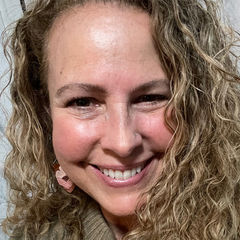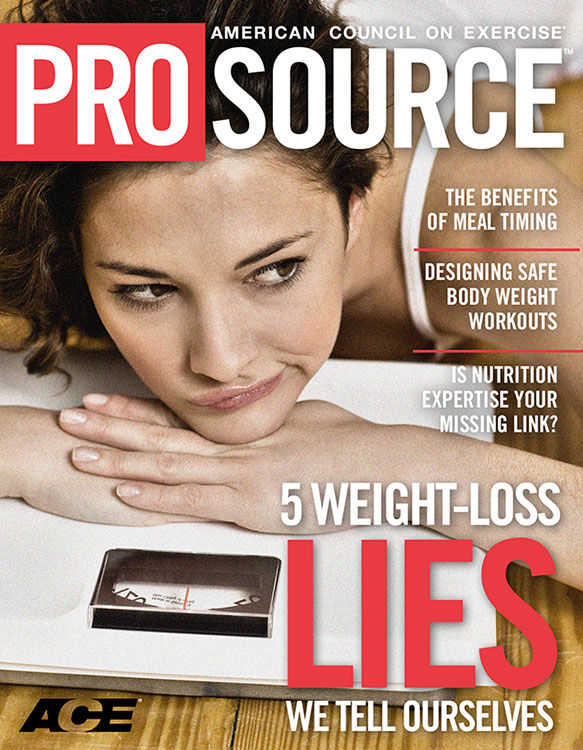
As a fitness professional, nutrition is one of those topics that can be tricky to navigate. It can also be confusing as to what your boundaries are regarding nutrition and how much information you are legally allowed to give a client if you are not a certified nutritionist or a registered dietician (RD).
“It is perfectly fine to give general healthy eating advice based on the U.S. Dietary Guidelines,” explains Janet Bond Brill, Ph.D., R.D.N., C.S.S.D., L.D.N., author of several books and Director of Nutrition for Fitness Together Franchise Corporation. “But with anything medically related, such as heart disease, high blood pressure, eating disorders, Crohn’s disease, etc., always [refer to] a registered dietitian.”
“Your responsibility to your clients cannot be taken lightly, as you risk making a dangerous misdiagnosis or causing significant harm or injury,” adds Michael Rattenni, an ACE-certified Fitness Professional and chairman of Triumph Group Management, an operations and management service provider for the fitness industry. “If you are not a registered dietitian or specially trained in nutrition, you may not recognize food sensitivities or allergies in your clients, which for some people can not only hinder their fitness progress, but can also lead to significant health problems.”
Bond Brill explains that each state has its own laws regarding providing nutrition information, which can help hone your scope of practice. For instance, in the state of Ohio, the guidelines for providing general non-medical nutrition information include providing “principles of good nutrition and food preparation, food to be included in the normal daily diet, the essential nutrients needed by the body, recommended amounts of the essential nutrients, the actions of nutrients on the body, the effects of deficiencies or excesses of nutrients, or food and supplements that are good sources of essential nutrients” (Source: Dietetics. Ohio Rev, Code Ann x 4759-2-01(M), 2006).
SMART Goals
The bottom line is your clients will not get the results they want without changing their eating habits. But you can’t be with them 24/7 to monitor what they’re eating, so what’s a trainer to do?
SMART Goals Are:
Specific
Measurable
Attainable
Relevant
Time-bound
Set SMART goals, says Bond Brill, but above all, highlight the "attainable" component of the SMART acronym. “Reward even the smallest positive change and remember, small steps are the most effective way to reach lofty goals.”
“Goals should revolve around behaviors the client can—and wants to—keep for the long-term,” says Jennifer Seyler, M.S., R.D., C.P.T., vice president of Health and Wellness at Fleishman-Hillard in Chicago.
Seyler adds that it’s important that the client chooses the goals he or she wants to work on, as opposed to you providing goals. “He then owns his goals and can’t say ‘that just wasn’t the right goal for me,’ because he picked the goal.”
Bond Brill agrees. You are there to help the clients find the answers to their problems, not hand them the answers, she says. It is their life, not yours, and they already have the answers. It is your job to help them find the solutions within themselves.
Small Changes, Big Results
It can be overwhelming for most people to overhaul their eating habits. Start small, say our experts. “I like to advise people to write down five to 10 eating behaviors they are willing to change,” explains Seyler. “After you review and modify as needed with subtle guidance, ask the client to pick the first one he wants to work on for the next two to four weeks. Once he has that behavior under control, have him pick the next behavior to work on.”
Rattenni initially focuses on portion sizes and timing of meals, rather than telling people what they can and can’t eat. “It can be very discouraging to be told all the things you should not eat,” he says. “Timing, portions and control are the three main stages to developing healthy nutrition habits.”
Encouraging clients to add healthier food, as opposed to handing them a list of “bad” foods they need to avoid can help them feel less deprived and more in control. If they keep a food diary, you will be able to see, for instance, how much water they’re drinking each day. You can then help them set a goal to begin incorporating more water into their day.
“Find out where their main problem areas are,” says Bond Brill. “For instance, perhaps they don’t eat any fresh fruit. Find out if they like any kind of fruit at all and see if they are willing to eat one piece of fruit a day to start.”
Cut Through the Confusion
What’s the difference between “All Natural” and “Organic”? What are some vegetarian sources of protein? How can you tell if fresh produce is genetically modified (GMO) or if the beef you normally eat was raised on hormones and fed GMO food? Is the Omni Diet safe? What are some good examples of pre- and post-workout meals?
There is a lot of misinformation and confusion out there. If you aren’t on top of the latest research and able to distinguish between true nutritional claims and false ones, how can your clients possibly do it? And how can they be successful at changing their eating habits if you can’t give them the basic information they need? Recognizing a tremendous need for fitness professionals to be more proficient in disseminating nutrition information, ACE developed the Fitness Nutrition Specialty Certification.

You’ll start with the ACE Fitness Nutrition Course, which includes a manual, a web-based presentation, a video series and a quiz. This core component of the certification gives you the basics you need to maximize your knowledge of nutrition, while staying within your scope of practice as a fitness professional. After completing this first stage, you’ll then go on to take the Sports Nutrition for Health and Performance course, which includes a book and online quiz. This course explains the nutrients and how they affect health, as well as the latest research on a wide variety of nutrition-related issues, including performance, weight loss and body-composition assessments.
Fitness and nutrition go hand-in-hand. As a fitness professional you need to be at the top of the nutrition game. The ACE Fitness Nutrition Specialty Certification will give you the information you need to help your clients navigate the nutritional labyrinth and ultimately get the results they—and you—want.





 by
by 



